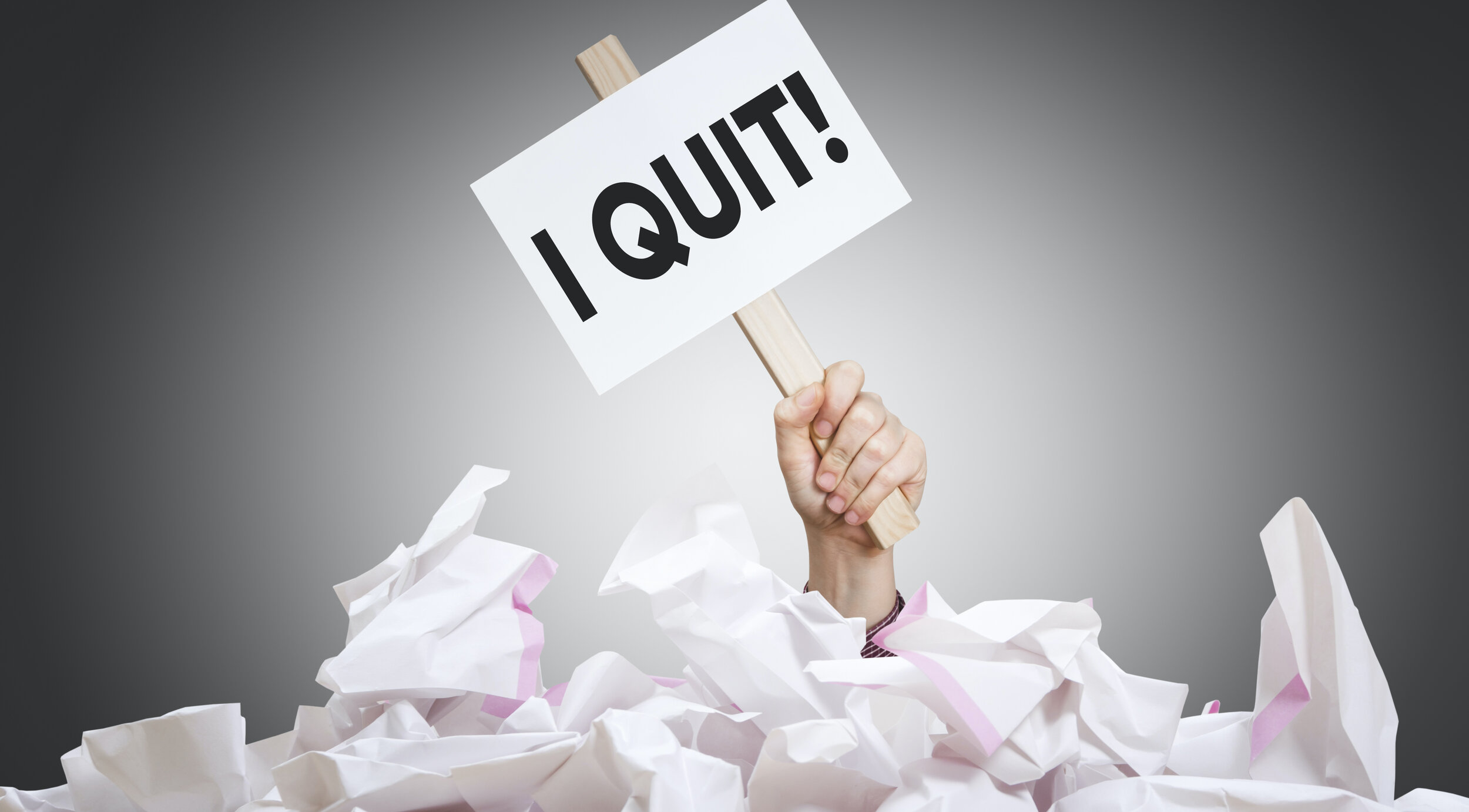iStockphoto.com | natasaadzic There may be many reasons to leave a job – a toxic work environment, little personal development or growth opportunities, no work/life balance, money, and so forth, but there are only two ways to leave a job – quit or get fired. So, does it matter which way you leave?Many of us …


iStockphoto.com | natasaadzic
There may be many reasons to leave a job – a toxic work environment, little personal development or growth opportunities, no work/life balance, money, and so forth, but there are only two ways to leave a job – quit or get fired. So, does it matter which way you leave?
Many of us have been stuck in such a bad work situation – one foot out the door and the axe swinging overhead. One way or the other the end is coming, and there are the two schools of thought on this all too common decision.
Quitting a job before getting fired has a swashbuckling “master-of-my-fate” allure. However, the decision to quit without another job lined up should be a deliberative and cautious process. Shouting “I quit!” and storming out in righteous indignation may play well in the theater of your mind, but not so much in the company lobby.
NOTE: This is not legal advice; if you’re in a difficult bind, an employment attorney can provide you with legal guidance and help navigate you through your options.
Here are some perceived advantages to quitting before getting fired:
-
Being fired may result in be perceived negatively in the job market, regardless of the reason why. By quitting, you avoid having the black mark of an involuntary termination in your employment history.
-
There are shades of gray regarding how quitting may be perceived. For example, if you quit a job because of unethical behavior by your employer, that may have a minor positive impact on your professional reputation.
-
Searching for a new job is a full time job. Quitting gives you the time to seek work on your own terms and schedule.
-
Leaving a job can be like releasing the valve of a pressure cooker, allowing pent up steam to vent, and rejuvenating yourself. This can allow you to put your best self forward.
-
There is an intrinsic energetic power to making the decisions that affect you the most, and the empowerment of leaving on your own terms can translate into confidence that carries into job interviews.
There may be a stigma to being fired, but waiting for it to happen can have its benefits:
-
Money – put simply, if you’re not working, you have no income. You can take the company’s money until the axe falls.
-
It can often be easier to find a job while you have a job. That is because of the perception (fairly or unfairly earned) that someone who is already working has more value in the labor market than someone who is unemployed.
-
If a company wants to fire you, they must follow a legal process. This takes time and allows you to search for new work and prepare yourself for your pending unemployment.
-
If you quit your job, you will not qualify for unemployment insurance benefits, whereas, depending upon state law, if you are fired you may qualify for assistance.
-
In some circumstances, you may receive some kind of severance in exchange for signing various legal documents. In other words, the company gets an assurance it will not face a wrongful termination suit in the form of a signed contract, and you get a financial cushion in return.
Philip Roufail contributed to this article.
Scott Singer is the President and Founder of Insider Career Strategies Resume Writing & Career Coaching, a firm dedicated to guiding job seekers and companies through the job search and hiring process. Insider Career Strategies provides resume writing, LinkedIn profile development, career coaching services, and outplacement services. You can email Scott Singer at scott.singer@insidercs.com, or via the website, www.insidercareerstrategies.com.





